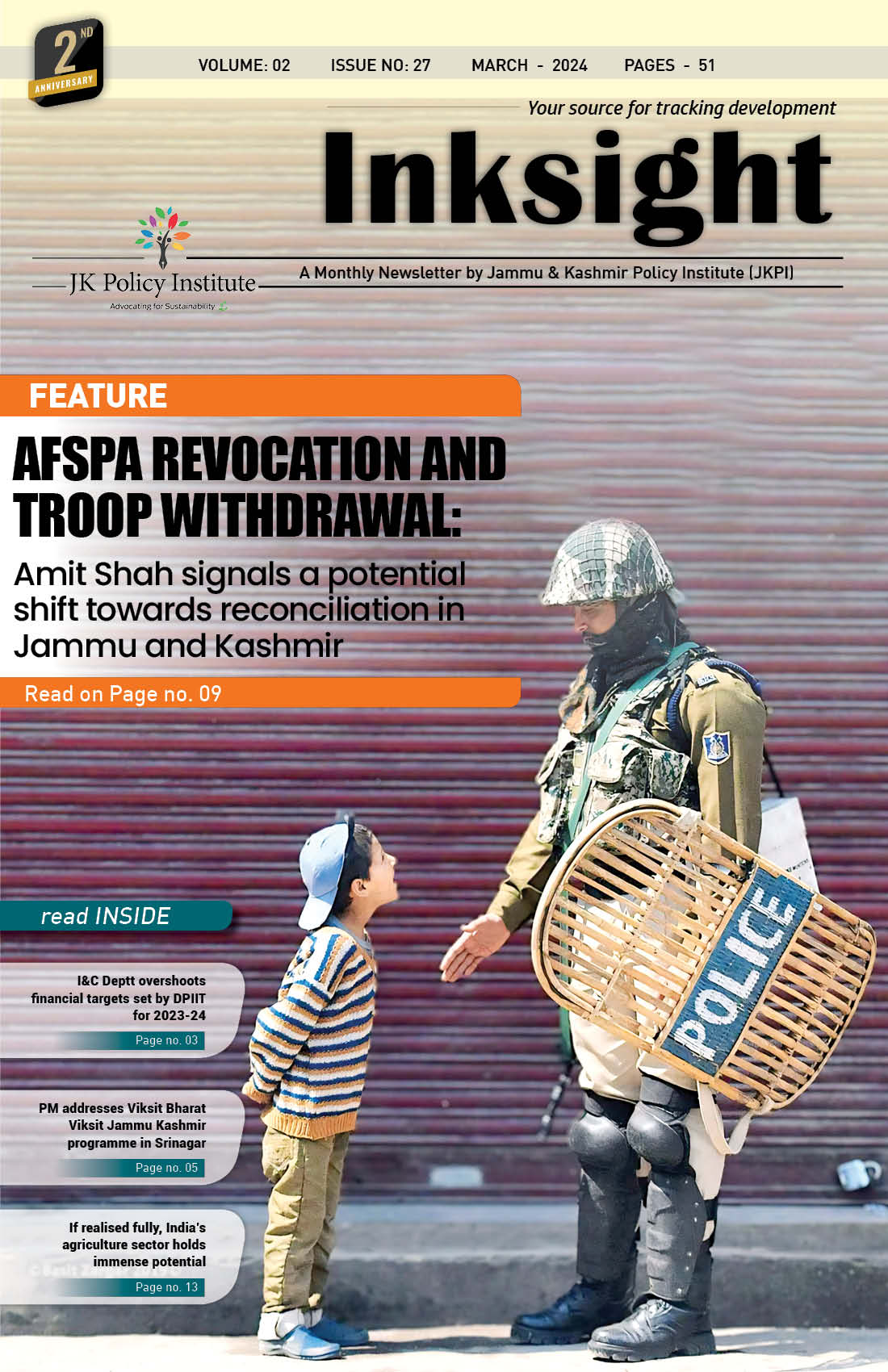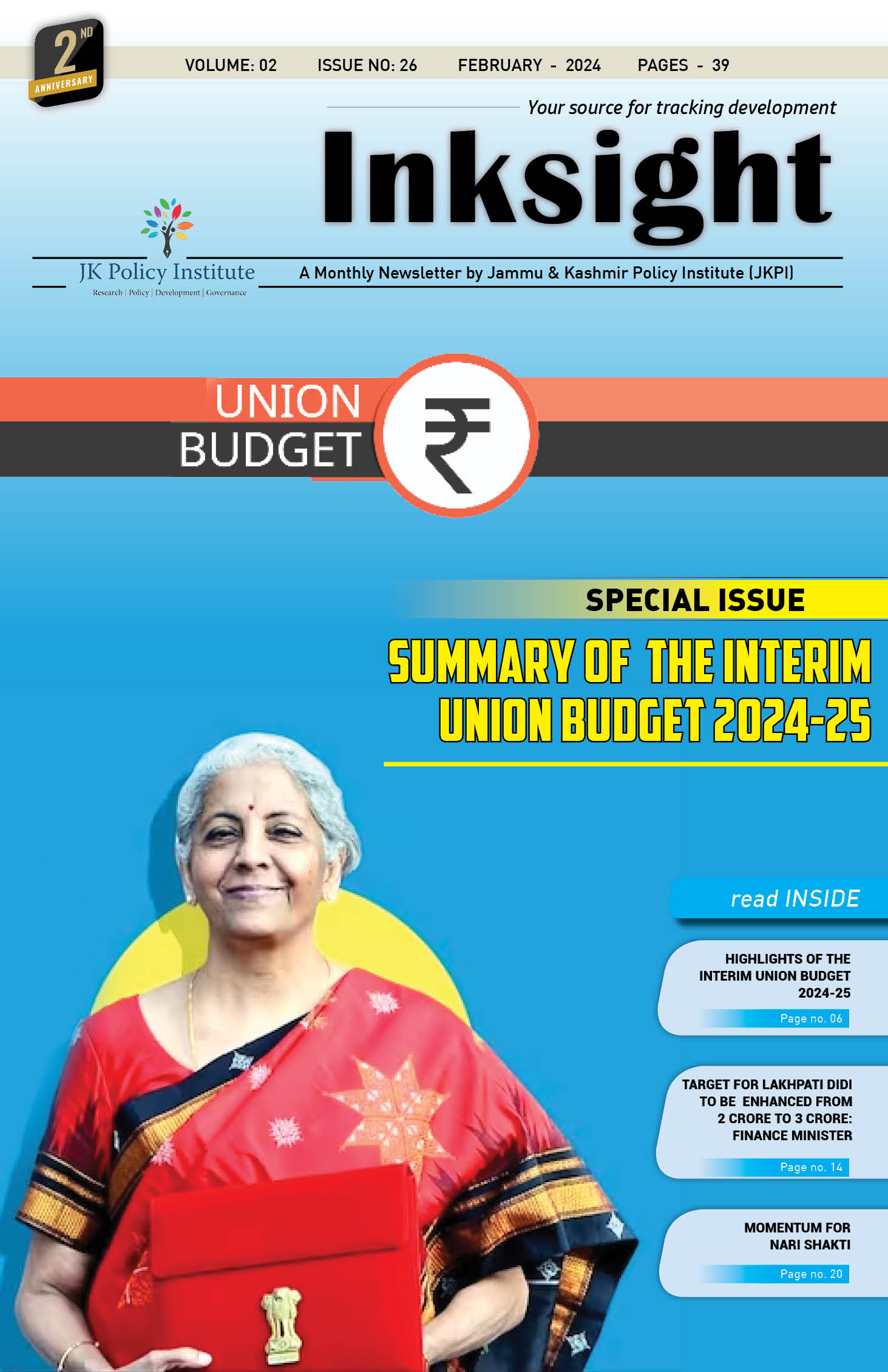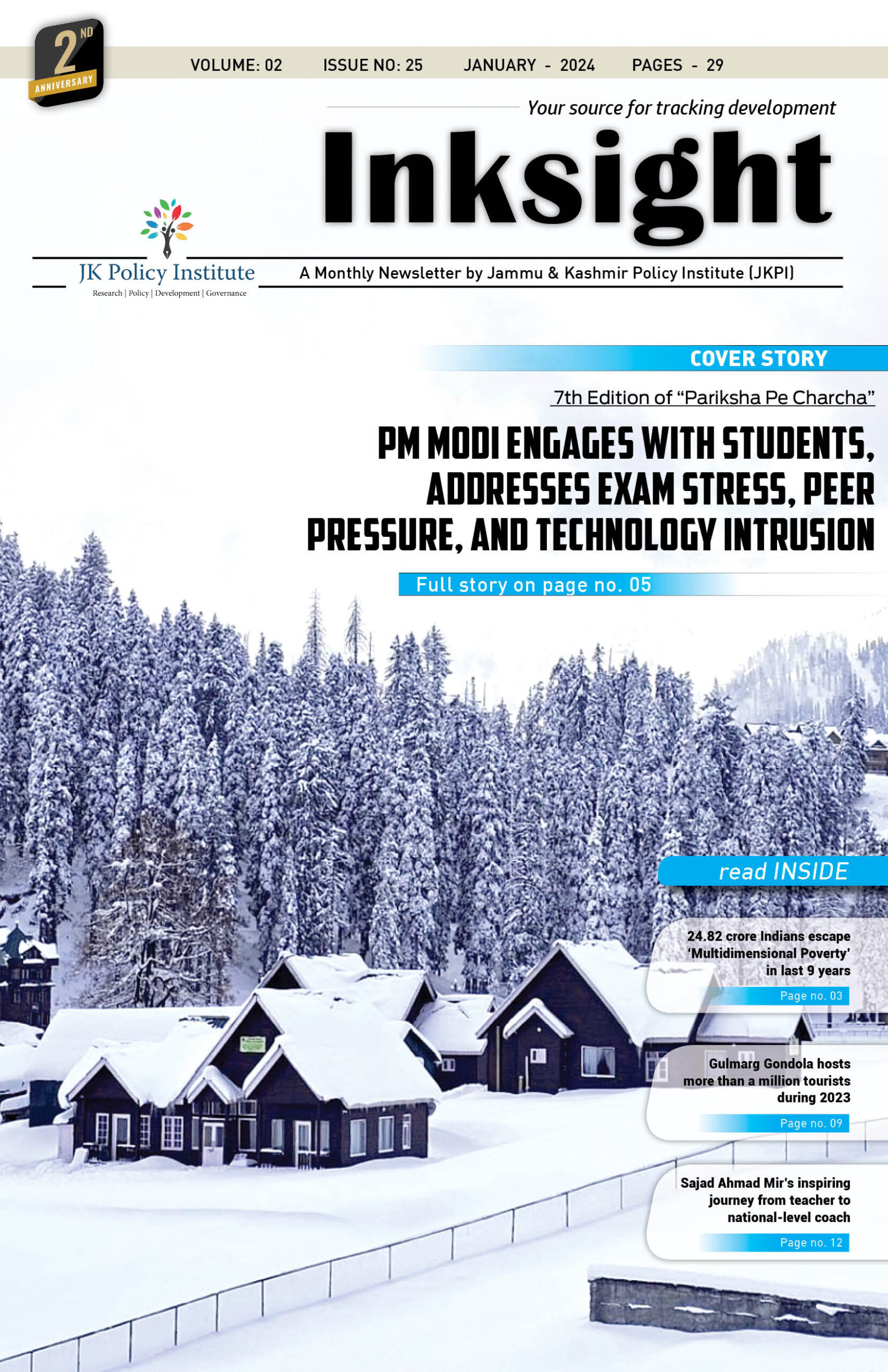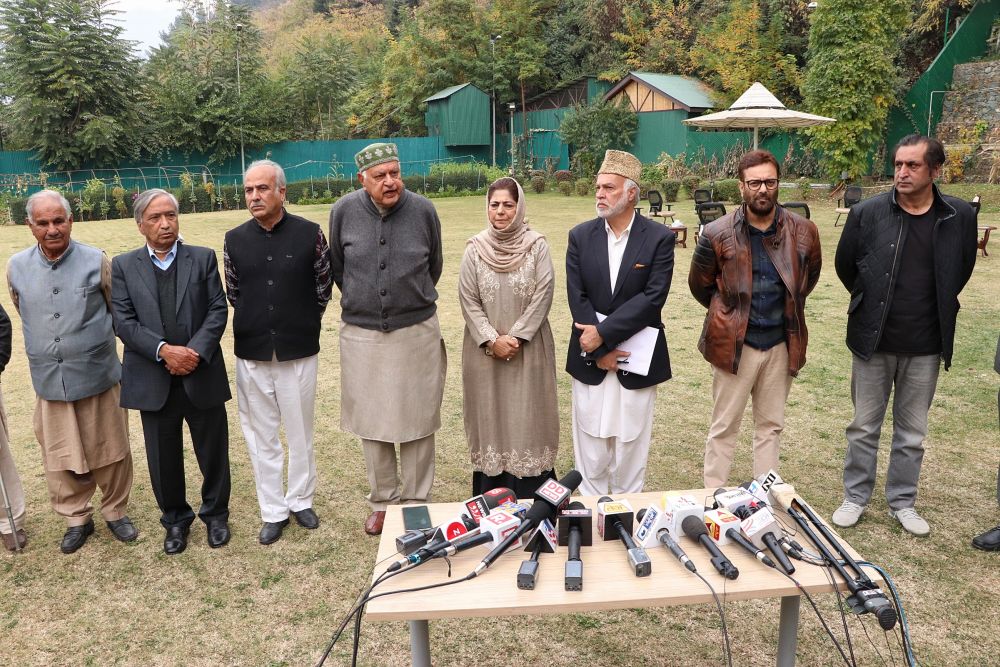The presence of mainstream political groups comprising PAGD at the centre-stage help spark much-needed credibility in the mind of the public with regard to politics of this place
The decision of the People’s Alliance for Gupkar Declaration (PAGD) to participate in the upcoming District Development Council (DDC) elections in Jammu and Kashmir – the first such electoral exercise since the abrogation of Article 370 – has added the badly wanted political flavour and colour to what otherwise would have been a bland democratic exercise. However, the dangerous political vacuum that has existed here for the past year, together with a complete lack of people’s participation in the decisions concerning them, the emergence of PAGD is a welcome development. Notwithstanding the disagreements, one may have with PAGD or with some of its constituents’ assertions, we ought to accept that the presence of mainstream political groups comprising PAGD at the centre stage help spark much-needed credibility in the mind of the public with regard to the politics of this place.
Lessons on leading through chaos and confusion from ‘1968 Democratic Convention’
In the midst of violence and tear-gassing by police during the 1968 Democratic Convention, a group of beaten and battered students came to Saul Alinsky, one of the best political organizers of the time (and perhaps all time) and sought his counsel on what he thought they should do. These were the students who had been with Eugence McCarthy and some even followed Robert Kennedy in opposing the Vietnam War.
“Mr Alinsky, we fought in primary after primary and the people voted ‘no’ on Vietnam. Look at that convention. They are not paying any attention to the vote. Look at your police and the army. You still want us to work in the system?”
Alinsky says the answer he gave the “young radicals” seemed to him the only realistic one: “Do one of three things. One, go find a wailing wall and feel sorry about yourselves. Two, go psycho and start bombing – but this will only swing people to the right. Three, learn a lesson. Go home, organize, build power and at the next convention, you be the delegates.”
This conversation between the students and Alinsky is the best sermon ever given on political realism. It is indicative of the varied choices that are available to any people once they feel overwhelmed by the political situation and circumstances surrounding them. This must exactly have been the popular feeling here past August 2019 when all of a sudden Jammu and Kashmir was divested of its special constitutional status, and split and downgraded the erstwhile state into two centrally administered Union Territories.
Here a clarification is in place. In the politics of realism, the same Alinsky says “you do what you can with what you have”. Abrogation of Article 370 had forever been on the BJP’s political agenda – one of the core beliefs of the party since its inception. But in the absence of requisite political power it couldn’t fiddle with the arrangement, even though it kept the issue alive by constantly talking about it and repeatedly promising it in its election manifestos. The sweeping majority in general elections in 2019 gave the BJP the kind of political muscle needed to transform the promise into a reality – and it did not waste the opportunity.
It had the political power to do what it wanted to do, and it did it – no one can fault BJP for executing its ‘core belief’ even though one can pick holes in the way the decision was implemented or go on subjecting it to cost-benefit analysis to arrive at conclusions favouring or disfavouring the move.
Since political realism is the background here, one cannot be selective in its application, denying it to the BJP while prodding the regional players in Jammu and Kashmir to cultivate this culture.
So moving forward, to contest the elections at the very first available opportunity is the only pragmatic option available for those who want to remain relevant in the politics concerning Jammu and Kashmir. This is fighting “within the system”. Fighting it from outside through violence and boycotts have yielded nothing – it has only brought death and destruction, and ended up disempowering and disenfranchising the people here besides making its protagonists completely irrelevant. Separatists after enjoying heydays for close to three decades are no longer visible. Violence as a political tool has largely lost its appeal, though a desperate but unsuccessful bid is there to keep the pot boiling.
After August 05, 2019 (the day Articles 370 and 35-A were revoked), the general public as well as the political groups here had exactly three options. They could have chosen to wail and weep, which perhaps they did for almost one full year – and until very recently when the emergence of PAGD reignited their hopes by articulating the pent-up feelings.
They could have chosen the second option – violence. But the inherent disqualification of this mode to yield desired political dividends, particularly in the changed geopolitical circumstances, is too visible to need any further elaborations. Indeed it was the violence crossing certain threshold – the ghastly suicide attack on a CRPF convoy past February which left 40 troops dead and scores wounded – which created conditions for the governmental retaliation and crackdown — both militarily as well as politically. Those who consider or condone such bombings and killings as “revolutionary acts” are actually hiding psychosis behind a political mask. Such people cannot be political leaders; they need medical help for mental illness and lunacy.
The third option, obviously is to build political power from within the system and then use this power to bring about the change that is needed, or desired, or both – of course it has to be the ‘people’s thing’. Looking at the reality, even if it appears to be too overpowering and awe-inspiring, does not mean that one has to necessarily resign to it and accept it as fate. Realism means looking at the situation as it is, and then trying to change it into what it should be. This aim is best achieved by working within the system.
This is what is encouraging about the PAGD – that it vows to fight the incumbent political status quo from within, through political and constitutional means. Pressing the adversary within the pages of her/his rule book (constitution), is the most satiating and satisfying of victories – a sensation so full of political dopamine!
Taking a new step, Dostoevski said, is what people fear the most. For one full year the situation here remained in absolute limbo. While the political leadership remained detained for a larger part, the general public felt so frustrated and so defeated and so futureless in the prevailing circumstances that they are now – to again use Alinsky’s words “willing to let go of the past and chance the future”. But for this, they need an agency, a vehicle that would guide them through a turbulent and treacherous terrain.
“Men (women included) don’t like to step abruptly out of the security of familiar experience; they need a bridge to cross from their own experience to a new way.”
Politics has to serve as this bridge. PAGD and all others – if they actually want to occupy this space – are on a right track. This is what was and is actually needed the most.
Politically some may feel threatened by its presence, but that’s normal. Isn’t this how the game is played in the arena of politics — where people move “primarily by perceived immediate self-interest, where morality is rhetorical rationale for expedient action and self-interest.”
Alinsky says, “a free and open society is an ongoing conflict, interrupted periodically by compromises, which then become the start for the continuation of conflict, compromise, and on ad infinitum.” Control of power, or simply put, delegations of duties and responsibilities in a family is based on compromises (understanding) between its members; a too state runs on the compromises between its polity; and the ones between the executive, legislature and judiciary.
Despite the shades of weakness, vacillation and betrayal it may carry, compromise is after all not a very bad and ugly word. Those accusing the PAGD (or this amalgam accusing others) of having compromised its professed ‘ideals’ by deciding to contest the DDC elections are actually eying some political mileage out of it, which they are entitled to. But this ‘compromise’ even if one may call it so, is what political realism demands and means, and is completely in sync with the ideals of working within the system in a democratic manner. One could only wish that the political echelons embrace this political realism and it stays as a popular culture among people too. Because it holds the promise and has the potential of steering this place out of the chaos and mayhem it has been caught up in for more than three decades.
The views and opinions expressed in this article are those of the author(s) and do not necessarily reflect the official policy or position of JKPI





Leave a Reply
You must belogged in to post a comment.